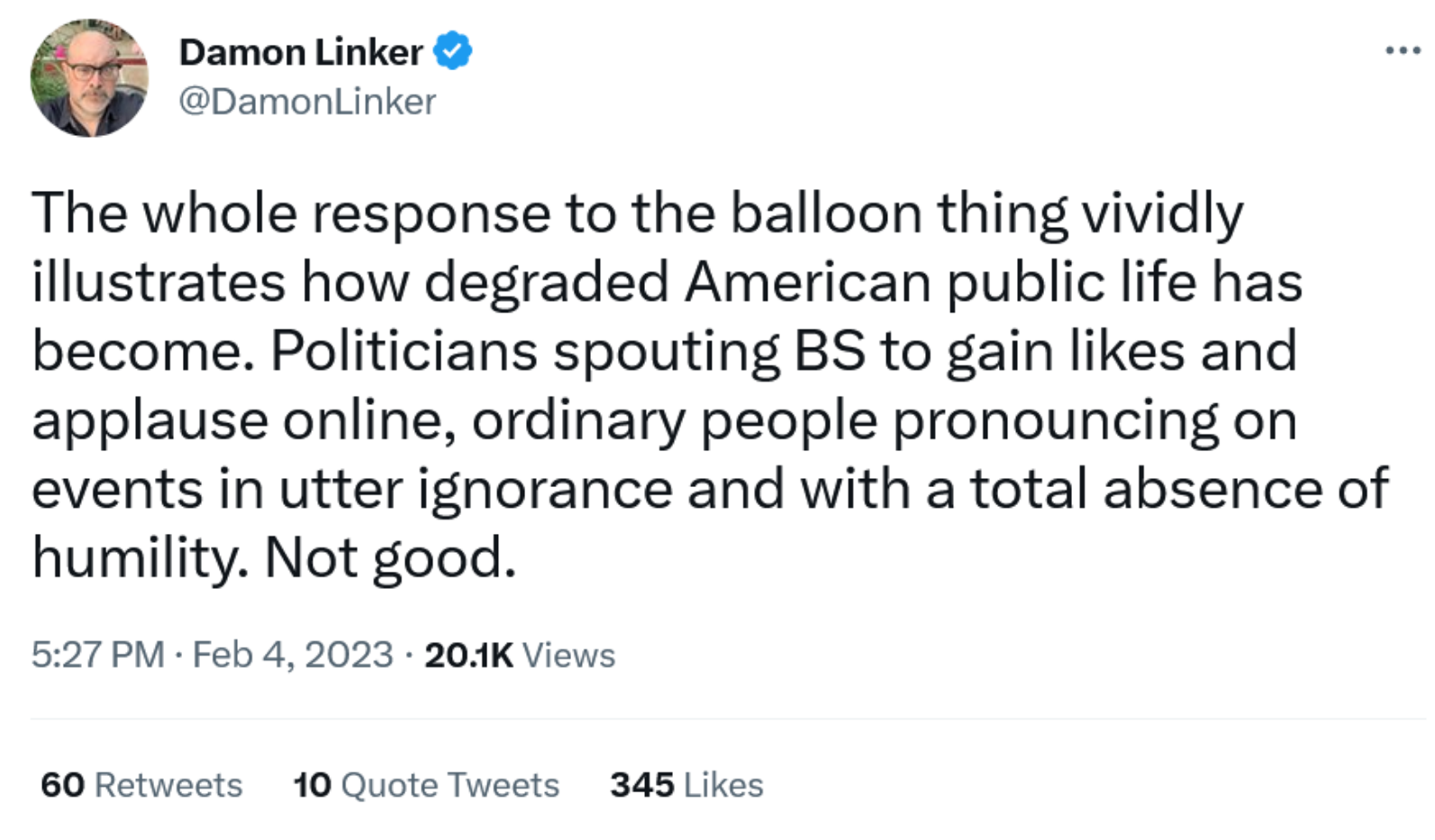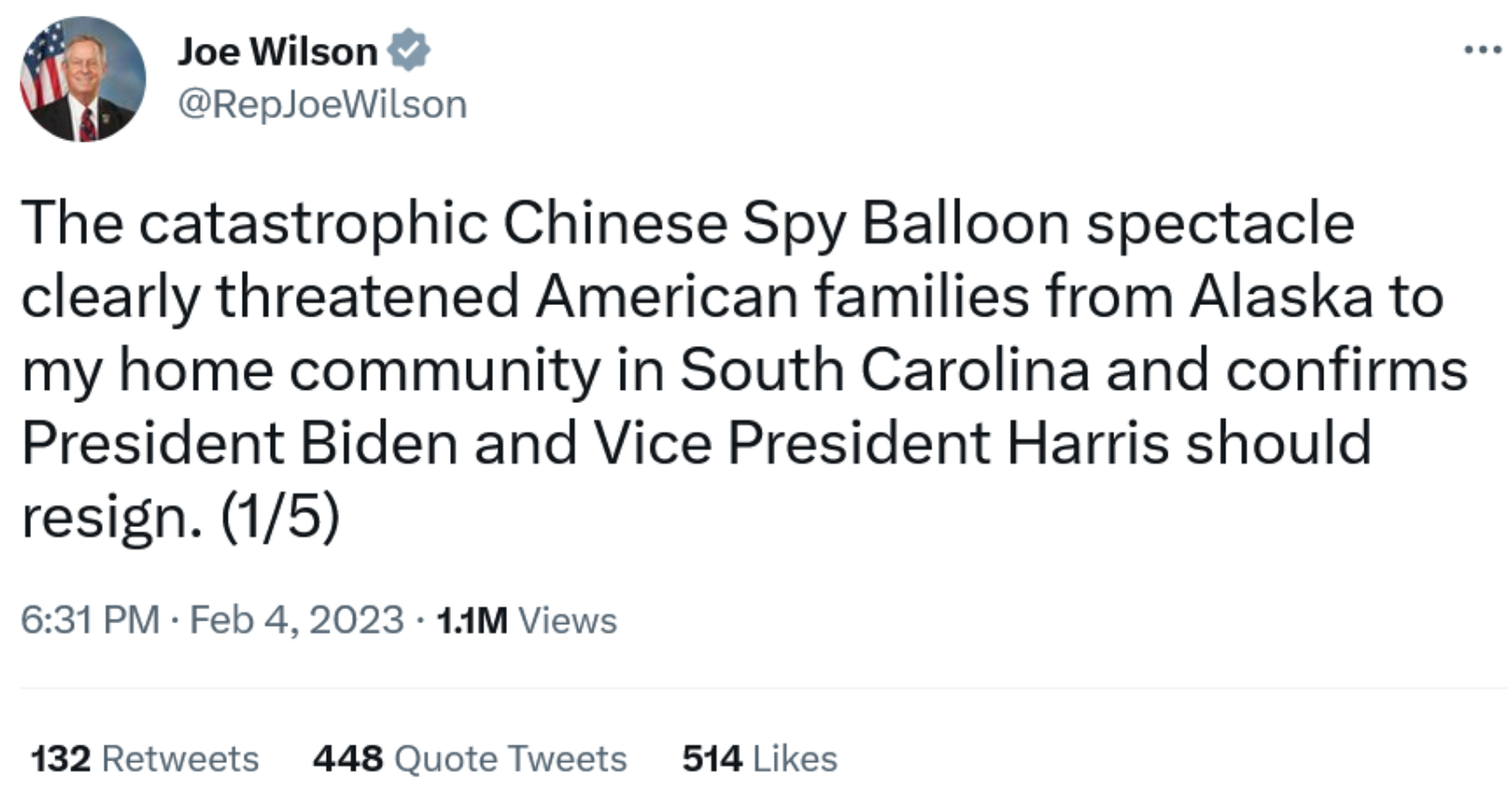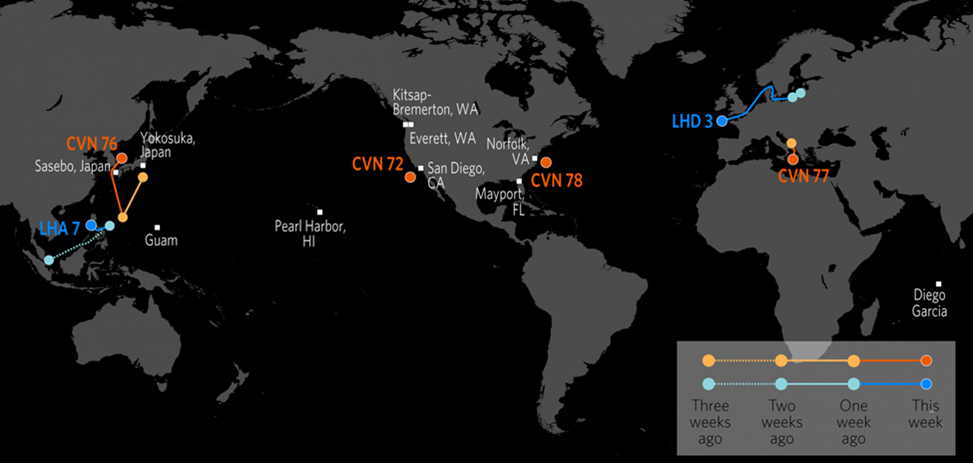The Daily Escape:

Sunrise, Town Cove, Eastham, MA – October 2023 iPhone photo by Wrongo
Wrongo and Ms. Right returned today from another fine stay on Cape Cod. Time with family and friends in a special environment is always fun and refreshing. It almost made us forget that we’re in the midst of a global hysteria surrounding the Israel/Hamas war.
What has happened so far and what may happen soon should be revolting to anyone who can empathize with other humans. Wrongo has a few thoughts for today’s Monday Wake Up Call: First, as terrible as the Israel/Hamas story is, we and the media shouldn’t obsessively focus on it to the exclusion of other important events. There are other problems that we need to keep a focus on.
And while it’s important to stay current, no one should subject themselves to watching the hostage videos that Hamas says they will be broadcasting of the hostages. Watching people suffer won’t make them suffer less. You can’t unsee these things. Moreover, you shouldn’t play into Hamas’ hands.
Second, Biden has been doing a reasonably good job in this crisis. From Dan Pfeiffer:
“Biden has been astride the world stage — speaking with strength, empathy, and moral outrage about the horrendous terrorist attack in Israel. At the other end of Pennsylvania Avenue, the Republicans have been involved in an embarrassing spectacle of self-sabotage and narcissistic incompetence.”
Axios reported that on Sunday, Israel resumed supplying water to the southern Gaza Strip after strong pressure from the Biden administration.
But here at home, we still have the problem of Republicans fighting amongst themselves:
“Electing a Speaker is the most basic Congressional function, yet the Republican Caucus seems incapable of doing so. The dysfunction among House Republicans has left the U.S. with only one branch of Congress. Without a Speaker, Congress cannot pass a bill to keep the government open, send military aid to Israel or Ukraine, or even name a post office.”
Third, people often say horrible things in the aftermath of an attack. But shouldn’t political officials be self-censoring? That wasn’t so with Israeli President Isaac Herzog. He said on Friday that all citizens of Gaza are responsible for the attack Hamas perpetrated:
“It is an entire nation out there that is responsible….It is not true this rhetoric about civilians not being aware, not involved. It’s absolutely not true. They could have risen up. They could have fought against that evil regime which took over Gaza in a coup d’état.”
Herzog is asking: Why didn’t the people of Gaza rise up and overthrow Hamas? He implies that if they had, Israel wouldn’t have to attack them. The thought of a politician holding civilians in any country (half of whom aren’t adults) collectively responsible for atrocities committed by a unaccountable minority should be carefully parsed.
And using this as justification for destroying neighborhoods, for cutting off fuel and electricity to an entire population while ordering the mass evacuation of over a million people, seems to Wrongo to be a disproportionate response. There are a few ethicists who follow the Wrongologist Blog. Hopefully they will weigh in on Herzog’s justification for invading Gaza, and the ethics of targeting civilians in war.
From a political viewpoint, if Israel acts in a restrained way and doesn’t respond with overwhelming force, then Israel looks weak both to its citizens and to the Arab world. That’s likely to encourage more attacks, perhaps by other Middle East actors.
If Israel responds with overwhelming force, then lots of Palestinian civilians will die. Israel will be condemned and possibly other Muslim countries will join in an attack on Israel. So, perhaps Hamas’ attack wasn’t to create maximum casualties in Israel, but to trigger this lose/lose set of options for Israel’s response.
Finally, no one has a serious idea on a way to reach across the mammoth void between the Palestinians and the Israelis. Wrongo found a quote that may offer a way to think about a future for the region:
“At the end of 1918, Marshal Foch was in his Luxembourg headquarters examining with his international staff how to deal with Germany and the Germans. He had this thought: “The Germans, we either exterminate them, or we get along with them. Exterminating them is impossible. So, gentlemen, let’s work out how to get along with them.”
That didn’t work in WWI. It hasn’t worked in the Middle East. Yet, people are the same all over the world. They all want family, friends, a dependable job, and a secure place to live. That’s certainly true for both the Palestinians and the Israelis. The question is: What must be sacrificed by either side to achieve it? And is either side capable of making a sacrifice today that will largely benefit their children’s grandchildren?
Time to wake up America! Do we ever take the long view? We seem to have forgotten how to sacrifice today for a better tomorrow. It’s possible that the Gazans are invoking such a sacrifice right now.
This shouldn’t be a foreign idea to Americans, particularly to Christians. Much of Christianity’s beliefs involve sacrifice. For example, Christians believe that Jesus endured the sacrifice of torture, crucifixion and death for their redemption. That sacrifice is remembered in most Christian Sunday services.
There’s a major difference between the sacrifice of Christ and the sacrifice about to be imposed on the men, women and children of Gaza. Christ sacrificed himself for others while Hamas is forcing tens of thousands of Palestinians to endure sacrifice for them. Those tens of thousands aren’t choosing to be sacrificed. It’s doubtful that Israelis want to be sacrificed: They’re just wishing the Palestinians would go away.
To help you wake up, watch and listen to “Zombie” by The Cranberries from 1994. The song was written by the late Delores O’Riordan, about The Troubles in Northern Ireland, the decades-long conflict between nationalists (mainly Irish or Roman Catholic) and unionists (mainly British or Protestant).
The Troubles ended, while the Israel-Palestinian standoff continues.
The song was written in response to the death of two young boys, Tim Parry and Johnathan Ball, who were killed in an IRA bombing when two IRA-improvised explosive devices hidden in trash bins were detonated in Warrington, England. Ball died at the scene:



 Wildflower bloom, Peridot Mesa on the San Carlos Reservation, AZ – March, 2023 photo by
Wildflower bloom, Peridot Mesa on the San Carlos Reservation, AZ – March, 2023 photo by 







